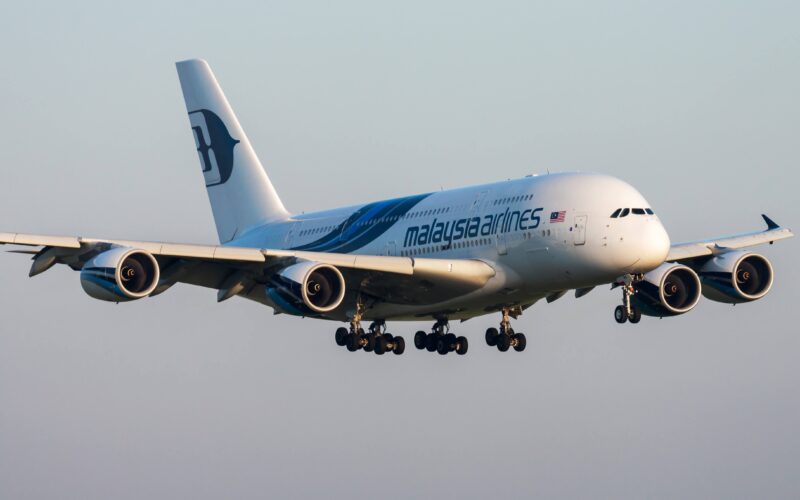While the pandemic keeps taking its toll on international air travel, airlines are reviewing the future of their widebody aircraft. The status of the Airbus A380 was under question even before the pandemic. But the current health crisis was just enough for some operators to single-handedly oust the Super Jumbo.
Another airline is joining the ever-growing list of the Airbus A380 former operators. Malaysia Aviation Group (MAG), the parent company of national air carrier Malaysia Airlines, launched a tender for the sale of its six Airbus A380s or their components on July 15, 2021. Interested parties are invited to send their proposals by August 12, 2021.
Earlier in 2021, Malaysia Aviation Group (MAG) underwent a restructuring process. Following the completion of its restructuring in May 2021, the airline revealed that it was exploring ways to dispose of its Airbus A380.
The Malaysia Aviation Group (MAG) reorganized its business so that the Airbus A380 no longer fitted its future plans. Now, the airline group is positioning itself as a global travel group and expanding beyond the airline business.
“We are cognizant of the challenges to sell this aeroplane, but we are still looking at ways and means to dispose of our 380 fleet,” Group Chief Executive Captain Izham Ismail said in May 2021 as quoted by Reuters. “At the moment, the management is convinced that the 380 doesn’t fit the future plan.”
Currently, the airline’s Airbus A380 fleet is still parked and waiting for its buyer at Kuala Lumpur International Airport (KUL), Malaysia. The average age of the airline’s six Super Jumbos stands at 9.2 years old, as per Planespotters.net data.
Malaysia Airlines – eighth operator of the Super Jumbo
In total, only 15 airlines in the world operated the Airbus widebody. Malaysia Airlines happened to become the eighth airline to operate the Super Jumbo and the seventh to drop it.
Malaysia Airlines took delivery of its first Airbus A380 on May 29, 2012. Powered by Rolls-Royce Trent 900 engines, the aircraft featured a three class layout, with capabilities to seat up a total of 494 passengers. Features included fully flat beds in first and business class. The airline ordered six double-deckers. The other five A380s were delivered in 2012 and 2013.
“This will be our flagship aircraft, offering new levels of comfort, luxury and convenience for long haul travel,” Ahmad Jauhari Yahya, the former MAS Group Chief Executive Officer, said at the time. “With the A380 in our fleet, MAS will reinforce its position as one of the world’s preferred premium carriers bringing great Malaysian Hospitality to our customers.”
In 2013, Malaysia Aviation Group and Airbus together marked a major achievement with the hand-over of the 100th A380 to Malaysia Airlines at Airbus’ Henri Ziegler Delivery Centre in Toulouse, France. The aircraft carrying the “100th A380” sticker, registered as 9M-MNF, was the last to join Malaysia Airlines’ Airbus A380 fleet.
“We are delighted that our 100th A380 delivery is to Malaysia Airlines as this gives us an early glimpse into the future shape of aviation,” said Fabrice Brégier, the former Airbus President and CEO. “We see a growing demand from dynamic, competitive airlines such as MAS for larger aircraft, with many markets and routes, and in particular in the fast developing Asia-Pacific region, being ideally suited to A380s.”
Malaysia Airlines 100th Airbus A380 aircraft. Picture: IanC66, Shutterstock.
The long-haul travel demand collapse brought by the pandemic has been especially cruel for the four-engined double-decker. Lufthansa (LHAB) (LHA), Air France, Hi Fly, Etihad Airways, Thai Airways, Qatar Airways, and now Malaysia Airlines said they would discontinue flying the Airbus A380 mainly due to operational inefficiency and costly maintenance. China Southern only hinted about their Super Jumbo fleet retirements. The rest of A380 operators, on the other hand, are in no rush to get rid of the world’s largest passenger aircraft.

